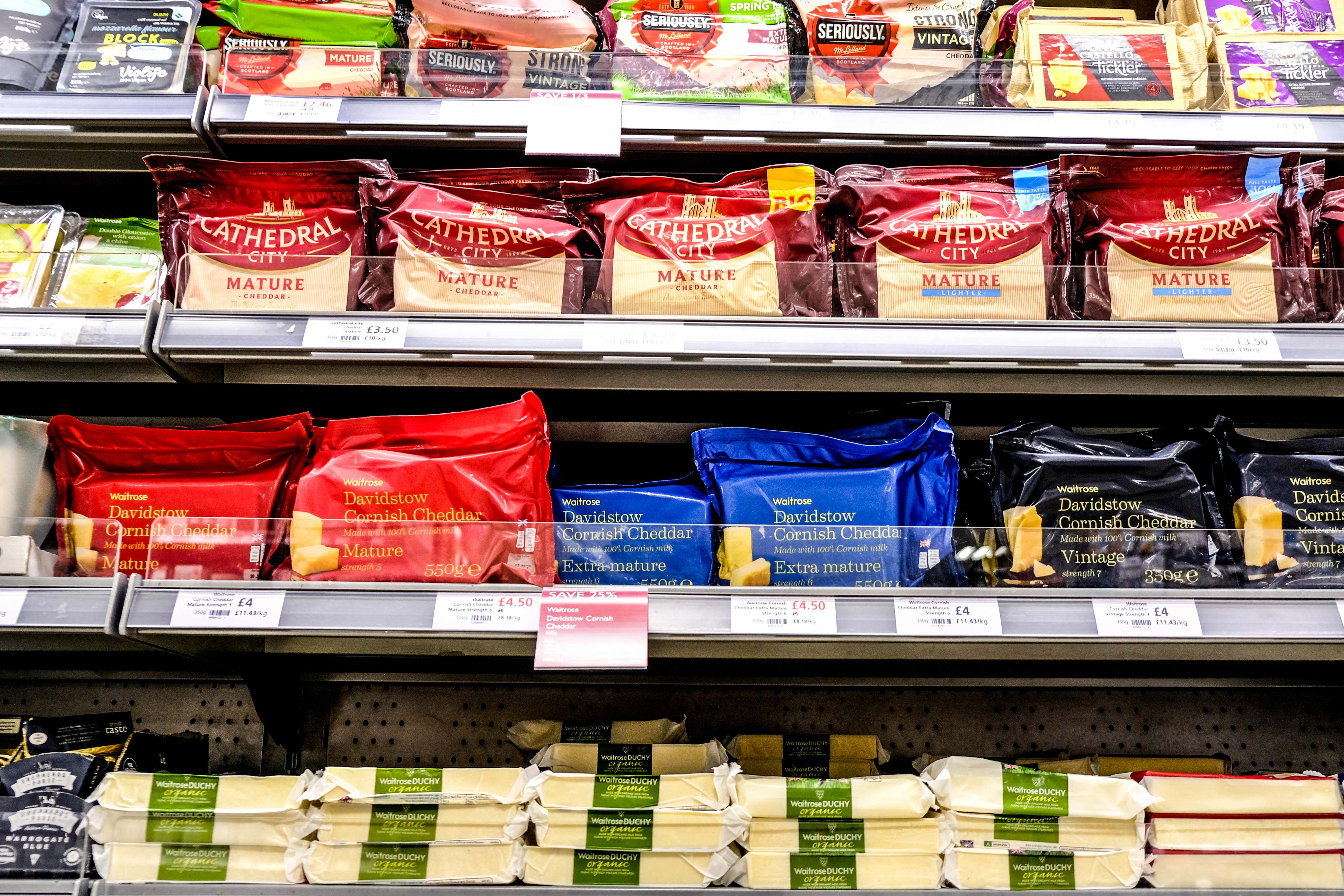Calls for plant-based alternatives to be labelled with warning signs
Plant-based alternatives could be a ‘useful steppingstone’ towards healthy and sustainable diet
Your support helps us to tell the story
This election is still a dead heat, according to most polls. In a fight with such wafer-thin margins, we need reporters on the ground talking to the people Trump and Harris are courting. Your support allows us to keep sending journalists to the story.
The Independent is trusted by 27 million Americans from across the entire political spectrum every month. Unlike many other quality news outlets, we choose not to lock you out of our reporting and analysis with paywalls. But quality journalism must still be paid for.
Help us keep bring these critical stories to light. Your support makes all the difference.
Plant-based alternatives to meat, cheese, eggs and yoghurt should be labelled and categorised more clearly to ensure people are aware of products that are ultra-processed, a study has suggested.
Plant-based alternatives could be a “useful steppingstone” towards healthy and sustainable diet, although researchers warned nutritional value can vary considerably from product to product.
As part of a review of evidence on plant-based alternatives, academics said the products typically have a lower environmental impact than those derived from animals and “have the potential to be healthier and nutrient-rich”.
However, they added that their nutritional contents are complex.
The main primary ingredient, as well as processing techniques and brand, were all vital to determining its nutritional value and environmental impact.
Ultra-processed foods (UPFs) are usually higher in fat, sugar and salt and contain chemicals, colourings, sweeteners and preservatives that extend shelf life.
While researchers said all plant-based alternatives “technically” fall into this category, they found the nutritional value of some products align with healthy dietary recommendations, including being high fibre and low in saturated fats.
They added that establishing a “clear division” between products that are less processed and ultra-processed could allow for short and long-term health impacts to be better assessed.

First author Sarah Najera Espinosa, a research student at the London School of Hygiene and Tropical Medicine, added: “Although whole foods are still considered the ‘gold standard’ for healthy and environmentally friendly diets, environmental and health outcomes from some novel plant-based foods are promising.
“Our review has demonstrated that some products, such as legume and vegetable-based drinks and legume- and mycoprotein-based meats, have the potential to be a useful steppingstone in the process of food system and dietary transformation if they are carefully selected.”
The research – which excluded tofu, tempeh and seitan, foods that have been part of traditional Asian diets for centuries – analysed more than 90 studies and reports from 2016 and 2022.
Academics said that the “limited evidence” on swapping meat for plant-based alternatives suggest the shift could be good for health, but the results for plant-based drinks were mixed, with links to micronutrient deficiencies.
They also found that most meat and dairy alternatives had more fibre and lower levels of saturated fats, although some cheese alternatives had higher saturated fat levels than their dairy counterparts.
Both meat and drink alternatives had, on average, the same salt levels as animal products, although meat alternatives contained more sugar.
The team suggested that labelling and sub-categorising plant-based alternatives – along with studies to evaluate how dietary changes impact upon the environment – should be a priority for policymakers.
Subscribe to Independent Premium to bookmark this article
Want to bookmark your favourite articles and stories to read or reference later? Start your Independent Premium subscription today.

Join our commenting forum
Join thought-provoking conversations, follow other Independent readers and see their replies
Comments